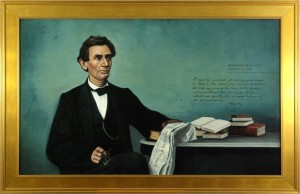The Roots of Progressivism Lie in . . . the Republican Party?
 Tonight, when President Barack Obama delivers his third State of the Union address, he is widely expected to channel the progressive rhetoric of Theodore Roosevelt. It was Roosevelt’s “New Nationalism” speech in 1910 (quoted in my previous post here) that called for the federal government to play an active role in regulating the economy. When he speaks to the nation tonight, President Obama is likely to push back against the demand to shrink the federal government – a common refrain among the current crop of Republican presidential candidates — by pointing to Theodore Roosevelt’s call for an active federal government.
Tonight, when President Barack Obama delivers his third State of the Union address, he is widely expected to channel the progressive rhetoric of Theodore Roosevelt. It was Roosevelt’s “New Nationalism” speech in 1910 (quoted in my previous post here) that called for the federal government to play an active role in regulating the economy. When he speaks to the nation tonight, President Obama is likely to push back against the demand to shrink the federal government – a common refrain among the current crop of Republican presidential candidates — by pointing to Theodore Roosevelt’s call for an active federal government.
It is certainly true that, in his “New Nationalism” speech, Theodore Roosevelt developed the theme that elite special interests had come to dominate government at all levels, thereby turning government into a tool for their own narrow purposes. President Obama is hoping that a return to this theme will resonate with voters today. However, while the connection between President Obama and Theodore Roosevelt has been widely reported, few commentators have recognized that these same ideas actually can be traced back to an earlier Republican president . . . Abraham Lincoln.

